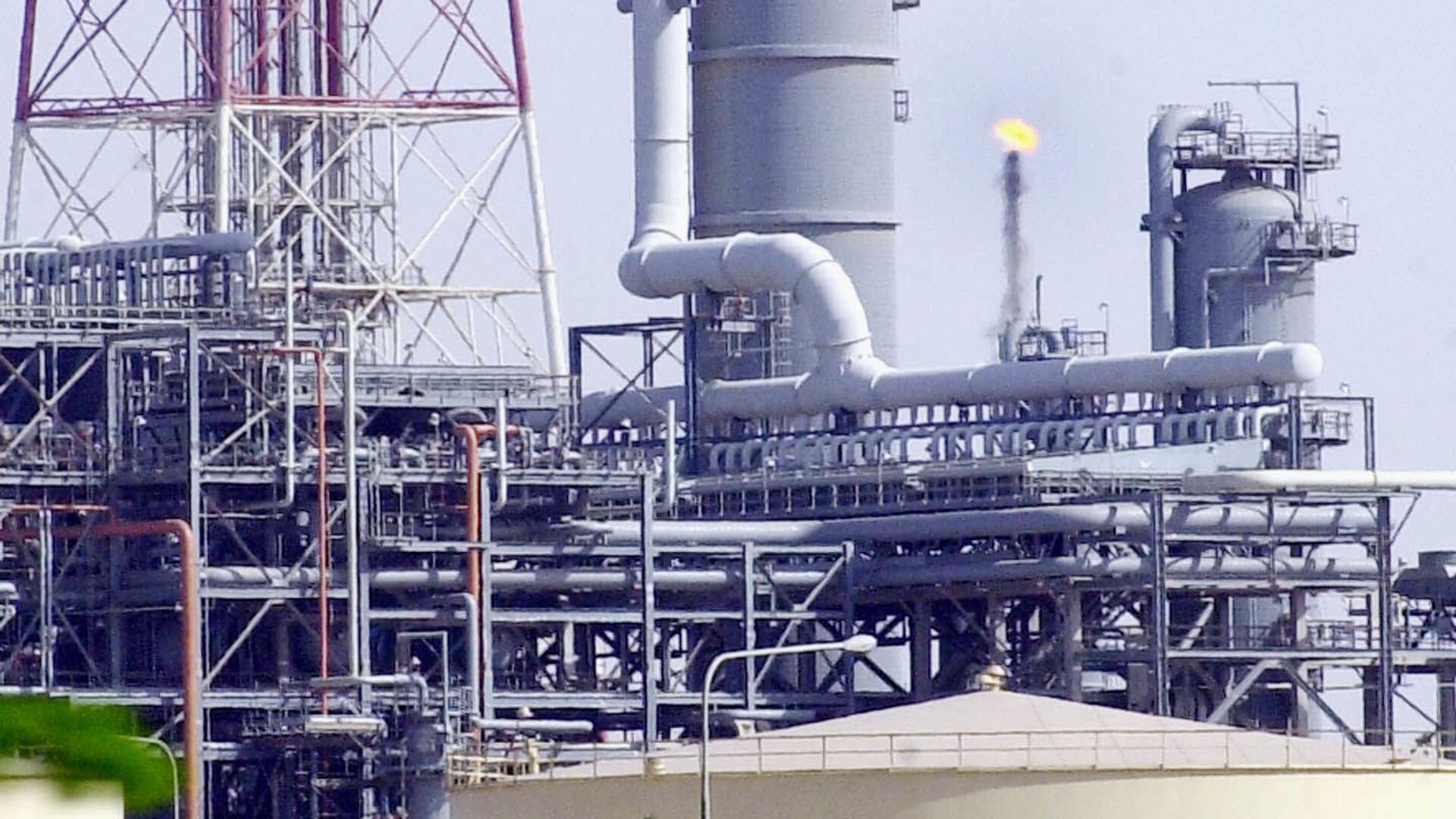Who’s the ‘Pariah’? After Snubbing Biden, Saudi Aramco Agrees to Build Massive Refinery in China

© AP Photo / HASAN JAMALI
Subscribe
During his presidential campaign in 2019, US President Joe Biden promised to turn Saudi Arabia into a “pariah” in retaliation for the murder of dissident journalist Jamal Khashoggi in the Saudi consulate in Istanbul, Turkey.
Saudi Aramco, the Saudi Arabian state oil company, announced on Thursday it would help build a massive new refining facility in northeastern China. The news comes a day after Riyadh snubbed a request by Biden to expand oil output to counteract a US ban on buying Russian oil.
Aramco said it would work with China’s North Huajin Chemical Industries Group Corporation and Panjin Xincheng Industrial Group to build a massive integrated refinery and petrochemical complex in Panjin, Liaoning Province. The facility will be able to produce 300,000 barrels of oil per day and will have a 1.5 million metric ton-per-year ethylene cracker and a 1.3 million metric ton-per-year paraxylene unit.
Talks to build the industrial complex began in 2019 following a visit to Beijing by Saudi Crown Prince Mohammed bin Salman, but were paused after the COVID-19 pandemic broke out. They were revived in early February as the Saudis sought to capitalize on rapidly rising oil prices. At the time, the deal was valued at $10 billion, according to S&P Global.
Announcement of the deal follows two related developments. On February 4, Russian state-owned gas firm Rosneft signed a 10-year agreement with China National Petroleum Corp (CNPC) to ship 100 million metric tons, or 200,821 barrels per day of oil to refineries in northwestern China.
"In accordance with the agreement of Rosneft and CNPC, there are prospects of interaction worked out concerning a set of areas of low carbon development, particularly in reduction of greenhouse gas emissions, including methane, technologies of energy efficiency, as well as CO2 capture and storage (CCS)," Rosneft said.
The deal came just two weeks before Russia launched a special operation in Ukraine aimed at neutralizing the country before it can become a launchpad for a NATO attack on Russia. The operation provoked massive sanctions from the United States and its allies aimed at gutting the Russian economy, including a March 8 decision to ban importing Russian oil into the United States.
As a consequence, already-rising oil prices spiked to $130 a barrel over the weekend, and gasoline prices in the US began rising sharply as well, severely damaging the US stock market. In response, Biden reached out to some of the world’s other oil producers, including Saudi Arabia and Venezuela - two nations he has sharply criticized.
On Wednesday, the White House tried to arrange calls between Biden, bin Salman, and Sheikh Mohammed bin Zayed al Nahyan, the ruler of the United Arab Emirates (UAE).
“There was some expectation of a phone call, but it didn’t happen,” a US official who was part of the effort told the Wall Street Journal. “It was part of turning on the spigot [of Saudi oil].”
Last year, Biden’s administration declassified files from the Office of the Director of National Intelligence claiming that bin Salman was directly connected to the 2018 murder of Saudi dissident journalist Jamal Khashoggi in the Saudi consulate in Istanbul, Turkey, which the crown prince has denied any involvement in. In 2019, Biden said he would “make them pay the price, and make them in fact the pariah that they are.”
In an interview with The Atlantic last week, the Saudi crown prince told the magazine “Simply, I do not care” whether Biden understands him or not. “It’s up to him to think about the interests of America. Go for it.”
Similarly, White House spokesperson Jen Psaki told reporters on Thursday that while US diplomats had traveled to Caracas to try and woo Venezuelan President Nicolas Maduro away from supporting Russia, so far no agreement had been reached.
Biden’s yearlong effort to revive the 2015 Iran nuclear deal, which his predecessor torpedoed, could also be on the rocks as Republicans attack Biden for continuing to work with Russian diplomats on the deal. Both the US and Russia are party to the deal, along with several other world powers. If revived, Iran would have to accept sharp limits on the quality and quantity of uranium it could refine for its civil nuclear power program in exchange for the lowering of US sanctions, which would allow Washington to buy Iranian oil.
Let's stay in touch no matter what! Follow our Telegram channel to get all the latest news: https://t.me/sputniknewsus
